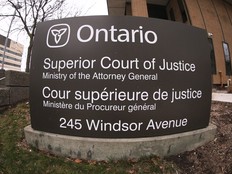GOLDSTEIN: Questioning Canada's immigration policies is not racist

Article content
The Mark Carney government will be performing a public service to Canadians if it abandons the reflex position of the Justin Trudeau government that any questioning of federal immigration policies is racist.
A report by The Globe and Mail that said 17,600 foreigners had their criminal convictions forgiven by the Immigration Department over 11 years, up to and including 2024 — thus removing a ban on them coming to Canada — is a case in point.
If five years have passed since a foreign criminal’s conviction or completion of a sentence, the Immigration Department has the power to deem them “rehabilitated,” meaning they can apply to enter Canada through work and study visas, as permanent residents or visitors.
Last year alone, 1,390 people had their criminal convictions forgiven, while 105 applications were refused, according to The Globe and Mail report.
There can, of course, be legitimate cases where, for example, an individual has been convicted by a dictatorial foreign government on false or trumped-up charges of criminal offences or where the convictions are for relatively minor offences.
But the problem is the Immigration Department won’t provide any breakdown of what crimes were forgiven, other than to say that in the most serious offences the immigration minister would be involved in the decision.
As Conservative immigration critic Michelle Rempel Garner told The Globe and Mail, this lack of transparency has to end “if the public is going to have any confidence in the immigration system’s vetting process.”
(Also of note here is that since the data covers an 11-year period up to and including 2024, it means it was in place during the Harper Conservative government, which was in office up until 2015, although the bulk of the decisions would have been made under the Liberals.)
This isn’t the first time Canadians have had a reason to ask legitimate questions about who is allowed into Canada and why.
Last year, in answering an order paper question by Conservative MP Laila Goodridge, which was reported by Postmedia, the Canada Border Services Agency responded that the federal government had lost track of almost 30,000 people who failed to appear for deportation proceedings.
Similarly, auditor general Karen Hogan reported in 2020 that the federal government had lost track of the whereabouts of over 34,000 foreigners ordered deported from Canada, including almost 3,000 criminal cases.
RECOMMENDED VIDEO
All the way back in 2003, then-auditor general Sheila Fraser reported that Ottawa had lost track of 36,000 people the federal government had ordered deported, adding that mismanagement of deportees was encouraging illegal immigration.
Obviously this is a chronic problem within the federal government that never gets resolved, but concern about losing track of foreign deportees is but one reason to be concerned about Canada’s immigration system.
In 2024, for example, internal government documents obtained by The Canadian Press revealed that in announcing a significant boost to its immigration targets in 2022, the Trudeau government ignored warnings from its own public servants that doing so would increase the cost of housing and negatively impact Canada’s already beleaguered health-care system.
That, of course, is exactly what happened with then-prime minister Trudeau eventually conceding the higher immigration targets had gone “far beyond what Canada has been able to absorb” and was “something that we need to get back under control,” which the Liberals belatedly attempted to do.
One presumes Trudeau and the Liberals didn’t consider themselves to be racists in doing so.













Postmedia is committed to maintaining a lively but civil forum for discussion. Please keep comments relevant and respectful. Comments may take up to an hour to appear on the site. You will receive an email if there is a reply to your comment, an update to a thread you follow or if a user you follow comments. Visit our Community Guidelines for more information.